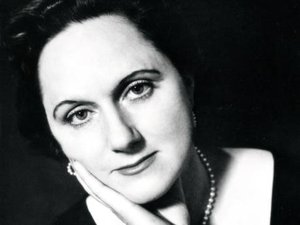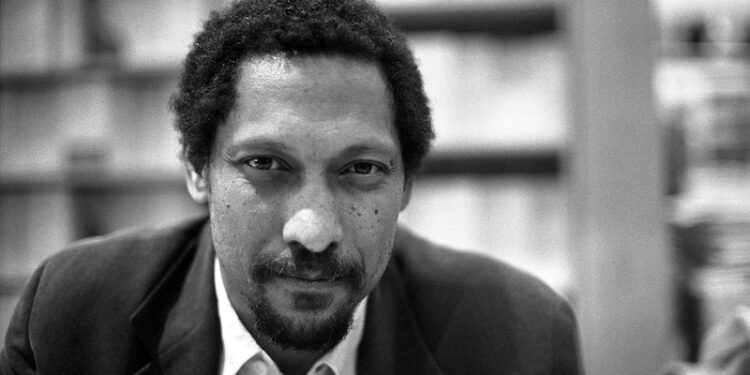Table of Contents
ToggleIntroduction
Top 5 Underrated English Authors You Should Know In the wide world of literature, some writers are unfairly overlooked in favor of their more well-known peers. Even though these lesser-known voices are incredibly talented, creative, and perceptive, mainstream readers frequently undervalue their writing.
However, their writings offer a complex tapestry of ideas, viewpoints, and storytelling styles that merit more recognition, and their contributions to English literature are priceless. These writers are worth reading for any serious literary enthusiast, regardless of whether their writings have faded into obscurity over time or have never gotten the general recognition they merit.
Why Pay Attention to Underrated Authors?
Before delving into these hidden gems, let’s explore why it’s worth paying attention to underrated authors. Some reasons include:
- Fresh Perspectives: Lesser-known authors bring unique perspectives, often influenced by their personal histories, cultures, or experiences. Their work can offer new insights and shed light on forgotten or neglected parts of history.
- Hidden Literary Gems: These authors may not have received mainstream recognition, but that doesn’t mean their work is any less valuable. Often, their writing is just as profound, creative, and thought-provoking as that of more famous authors.
- Discover Untold Stories: The literary canon is filled with male-dominated, mainstream narratives, but underrated authors can offer alternative stories and different styles that enrich our reading experience.
- More Space for Appreciation: Fewer people may be familiar with these authors, so you get to join a group of readers who appreciate the depth and beauty of their work. It feels rewarding to champion an underappreciated writer before their talent becomes widely recognized.
Now, let’s introduce five underrated English authors whose works are waiting to be discovered.
1. Elizabeth Taylor (1912–1975)
Best Known For: “Mrs. Palfrey at the Claremont” and “Angel”
Elizabeth Taylor is a writer whose novels often explore the inner lives of ordinary women and the complexities of relationships. Despite critical acclaim for her insightful and precise prose, she has never achieved the widespread fame of some of her contemporaries, such as Virginia Woolf or Daphne du Maurier. Taylor’s writing is intimate, often focusing on subtle emotional tension, personal struggles, and the mundane yet profound experiences of her characters. Her books offer a quiet, detailed reflection of middle-class life in England, which feels timeless and emotionally resonant.
Read More
Key Themes: Domestic life, relationships, isolation, human flaws
Why You Should Read Her:
- Taylor’s characters are well-drawn and relatable, and her writing offers a window into the emotional complexity of everyday life.
- Her works often explore women’s roles within society, particularly the tensions between societal expectations and personal desires.
- “Mrs. Palfrey at the Claremont” is a poignant exploration of aging, loneliness, and the bonds that form between strangers.

2. Sylvia Townsend Warner (1893–1978)
Best Known For: “Lolly Willowes” and “The Corner That Held Them”
Sylvia Townsend Warner was a highly versatile writer whose work ranged from satirical novels to historical fiction and poetry. Though her novel Lolly Willowes has been rediscovered and celebrated in recent years, she still doesn’t receive the attention she deserves. Warner’s works are known for their wit, keen social observations, and exploration of complex themes like autonomy, isolation, and rebellion. Her characters often defy conventional expectations, leading to narratives that are both unexpected and thoroughly engaging.
Key Themes: Feminism, personal freedom, unconventional lives, relationships with nature
Why You Should Read Her:
- Lolly Willowes, a brilliant novel about a woman’s escape from the constraints of society, is a feminist classic, filled with humor, enchantment, and political subtext.
- Her exploration of personal identity, loneliness, and women’s desire for independence feels fresh and relevant even today.
- Her historical novel The Corner That Held Them is a rich exploration of medieval monastic life, written with a sharp, observant eye for the human condition.
3. Henry Green (1905–1973)
Best Known For: “Loving” and “Party Going”
Henry Green is often considered a master of modernist literature, yet his work remains underappreciated by the wider reading public. Green’s novels often deal with themes of class, desire, and the complex dynamics of personal relationships. His writing style is distinctive, characterized by fragmented sentences, ambiguous dialogue, and a focus on sensory experience rather than straightforward narrative. His works are both intellectually challenging and deeply rewarding for readers willing to dive into their intricate, layered worlds.
Key Themes: Class, relationships, identity, personal isolation, social conventions
Why You Should Read Him:
- Green’s Loving is a masterpiece of psychological fiction, offering a nuanced portrayal of class and sexual relationships within the confines of English society.
- His writing is highly innovative, creating a unique reading experience that challenges conventional forms and narrative techniques.
- Party Going, his novel about a group of upper-class individuals stranded in a hotel during a storm, offers a sharp and darkly comic look at human nature and social behavior.
4. Ruth Rendell (1930–2015)
Best Known For: “The Bridesmaid” and “A Judgement in Stone”
Ruth Rendell is best known for her crime fiction and psychological thrillers, yet she has never received the same level of fame as some of her peers like Agatha Christie or P.D. James. Rendell’s novels explore the dark undercurrents of human behavior, focusing on the psychological motivations behind crimes and the intricate relationships between characters. Her works are often deeply unsettling and explore the tension between order and chaos in modern society.
Key Themes: Crime, psychological suspense, human depravity, social alienation
Why You Should Read Her:
- Rendell’s A Judgement in Stone is a chilling psychological thriller that delves into the inner workings of a seemingly normal family with devastating consequences.
- She is a master of creating complex characters and narratives that explore the darkness of the human psyche.
- Her works offer a unique combination of literary quality and gripping suspense, making them ideal for readers who want more depth from their thrillers.
5. A.L. Kennedy (1965–Present)
Best Known For: “Day” and “The Blue Book”
A.L. Kennedy is a contemporary British author who writes with a mixture of dark humor, philosophical insight, and deeply human observations. Her works often blend elements of fiction with sharp, introspective commentary on life, love, and loss. Kennedy’s writing is known for its emotional depth and its ability to explore the nuances of the human experience, particularly the ways in which people cope with their vulnerabilities and the challenges they face in their lives.v
Read More
Key Themes: Relationships, loss, mental health, introspection, human vulnerability
Why You Should Read Her:
- Kennedy’s novel Day is an extraordinarily powerful and nuanced examination of a soldier’s psychological trauma after the Second World War.
- Her writing is introspective, sensitive, and full of emotional resonance, making her a highly empathetic writer who connects deeply with her readers.
- Kennedy’s work is both thought-provoking and emotionally rewarding, offering readers a chance to reflect on the complexities of modern life.

Conclusion
While the literary world is filled with renowned writers who dominate the conversation, there are many underrated English authors whose works deserve just as much attention. Elizabeth Taylor, Sylvia Townsend Warner, Henry Green, Ruth Rendell, and A.L. Kennedy are five such authors whose contributions to literature are rich, complex, and thought-provoking.
By reading their works, you’ll gain access to new perspectives, fresh insights, and unforgettable characters that will deepen your understanding of the world and the human condition. So, dive into these authors’ books, and you might just discover your next favorite writer.
Read More
FAQ
1. Why are these authors underrated?
There are many reasons these authors may be considered underrated, including lack of marketing, publishing trends that favor more commercial writers, or simply a lack of recognition in mainstream literary circles. Despite this, their works often remain highly regarded by literary critics and are beloved by a devoted, smaller audience.
2. What makes these authors’ works worth reading?
These authors are known for their unique perspectives, skillful storytelling, and ability to explore deep psychological and emotional themes. Their works offer readers new experiences, with fresh takes on both classic literary forms and modern storytelling.
3. Are their books easy to find?
Yes, most of the works by these authors are still in print and available online through major book retailers, such as Amazon and Book Depository, and in libraries. Some may have niche followings, but their works can often be found in independent bookstores and specialty sections of larger retailers.
4. What should I read first if I’m new to their works?
- For Elizabeth Taylor: Start with Mrs. Palfrey at the Claremont for a moving exploration of aging and isolation.
- For Sylvia Townsend Warner: Lolly Willowes is a delightful yet subversive novel that blends feminism and magical realism.
- For Henry Green: Try Loving, a compelling examination of class and romantic relationships.
- For Ruth Rendell: A Judgement in Stone is a classic psychological thriller, perfect for newcomers to her work.
- For A.L. Kennedy: Day is a great starting point for readers interested in exploring complex human emotions through the lens of post-war trauma.
5. What makes these authors different from more famous writers?
These authors are often less concerned with broad commercial appeal and more focused on deep emotional or psychological exploration. They tend to create nuanced characters and write in ways that challenge conventional storytelling, offering readers a more thoughtful and reflective experience.















